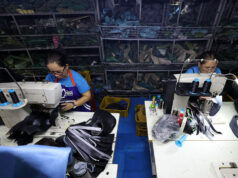Money service firms linked to suspicious transactions
A NUMBER of local money service businesses were found to have allowed transactions from unknown customers to unverified entities even before the massive Bangladesh Bank heist in 2016, showing the country is an “attractive venue for financial crime,” a report found.
The Philippine Center of Investigative Journalism (PCIJ) looked into suspicious activity reports (SARs) submitted to the US Treasury Department’s Financial Crimes Enforcement Network (FinCEN) by the Bank of New York Mellon (BNYM) that involved Filipino subjects with amounts “too big to be left unnoticed by banks and regulators.”
“From the more than 2,100 SARs included in the FinCEN files, a total of 27 SARs, filed between 2010 and 2016, refer to Filipino individuals and companies as originators and beneficiaries of “suspicious” wires. These PDF reports contain narratives of more than 1,700 transactions worth at least $644 million,” PCIJ’s report said.
It noted actual figures could be higher as there are still transactions cited in prior SARs that were not included.
Based on the SARs involving activities of Philrem Service Corp. and Werquick, Inc., both local money service businesses, some of their transactions were flagged for reasons including the nondisclosure of the source of funds, unverifiable recipients, and large transactions done in between short periods of time.
“The findings of the reports once again emphasize the need to pursue intelligence-led changes for financial crime risk management — driven by meaningful improvements to public-private sector cooperation and cross-border information sharing, coupled with the use of technology — to enhance the global anti-financial crime framework,” International Institute of Finance President and Chief Executive Officer Tim Adams said in a statement.
About 70% of the estimated total $644 million were transacted by the money service businesses, of which $335 million was by Philrem while $124.1 million was from Werquick. The study also found 5,001 suspicious transfers worth $1.03 billion involving Philrem and Werquick from wires done from November 2012 to March 2016.
“In the SARs, it appears that Philrem and Werquick were able to send multimillion in dollars without identifying or verifying the source of the funds, the true beneficiary, as well as the purpose of the transactions,” PCIJ said.
Philrem is currently facing charges for four counts of money laundering for failing to report suspicious transactions in relation to the Bangladesh Bank heist in 2016.
A recent study by the Anti-Money Laundering Council (AMLC) also found that transactions related to sex exploitation of children during the lockdown were done mostly through money service businesses (60.2%), followed by banks where 35.2% of the money flowed through.
The AMLC, which serves as the Philippines financial intelligence unit and regulator, has a capacity that “has long been in question” given it has to deal with numerous suspicious transaction reports (STRs) with only 30 to 40 staff members in its financial intelligence analysis group, PCIJ said.
Earlier this month, AMLC Executive Director Mel Georgie B. Racela said they already received approximately 400,000 STRs so far this year, which was the total for 2019.
Suspicious transaction reports are filed with the AMLC when institutions see financial transactions that do not appear to be ordinary or could potentially be part of a dirty money scheme.
The Philippines is under an observation period until February 2021 and is expected to address the gaps in its anti-money laundering and terrorism financing rules to prevent being included in the gray list of countries deemed lax in enforcing measures against dirty money schemes. — Luz Wendy T. Noble



